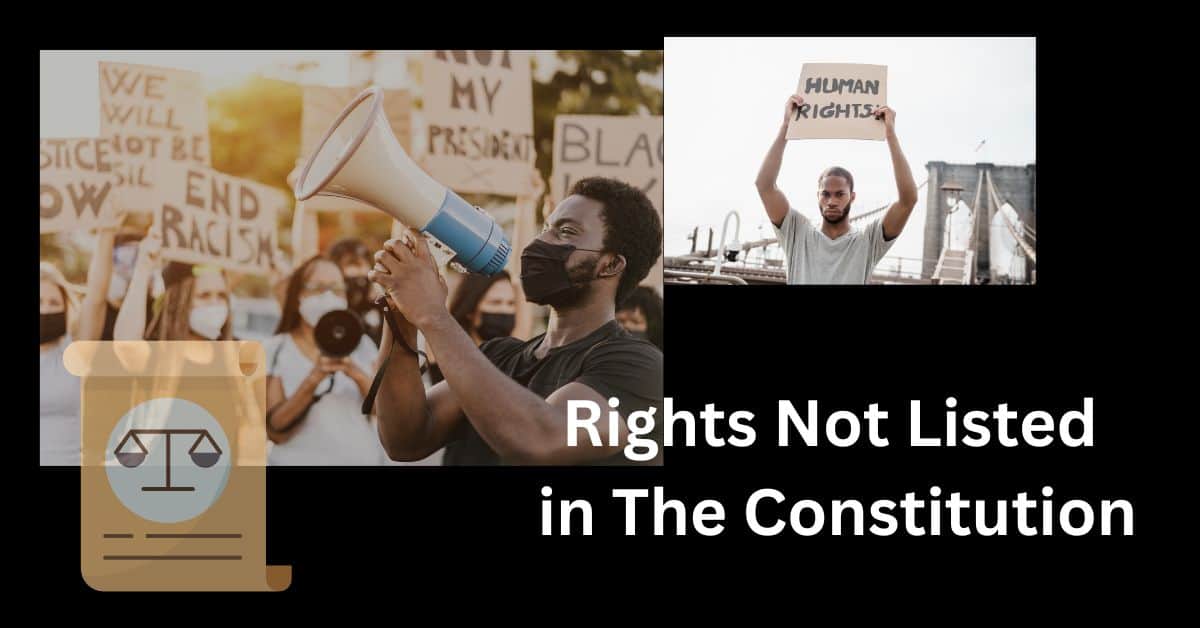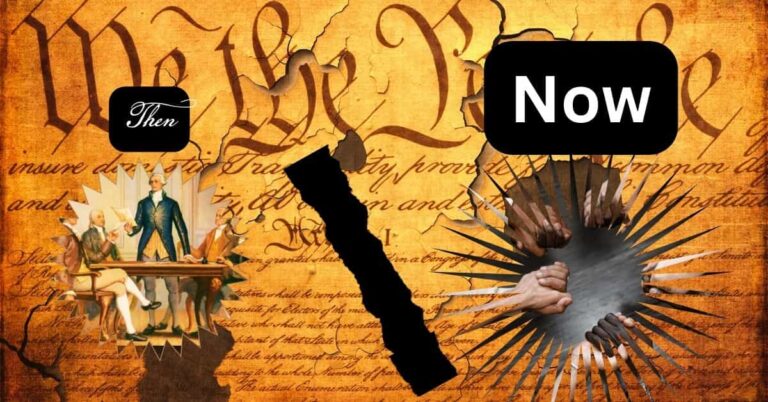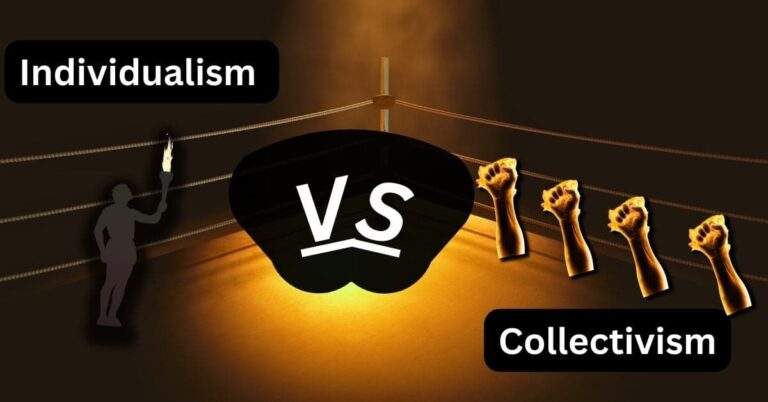As Americans, we have loud mouths! Go ahead and hold up all the offensive signs you want at peaceful rallies! Nothing will happen. You can thank the enumerated right of freedom of speech for restraining government. You won’t go to jail today. But, why are some rights not specifically mentioned?
Unenumerated rights are not listed in the Constitution. Some of the basic unlisted rights are: the right to privacy and the right to vote. Other countries’ founding documents recognize some social rights. Unenumerated constitutional rights gain notoriety through the court system.
Many of the rights I’ll mention below are controversial. Some are considered privileges and not rights. Take what you read and make your own judgment.
Understanding of Rights
To clarify a few outliers, let’s briefly discuss enumerated vs unenumerated so you can fully understand this post.
Enumerated Rights
Enumerated rights are rights listed in the Constitution. They include the first 10 amendments (Bill of Rights).
Enumerated rights include:
- Freedom of speech
- Freedom of religion
- Freedom of the press
Since the adoption of these amendments, broad political movements managed to add lists of further rights. Let’s take a look at the different categories.
There are 3 categories of rights developed over the last 3 centuries:
- Civic Rights- 1st generation
- Developed over 230 years ago
- Example: your freedom of expression (think your rally signs)
- Political Rights-2nd generation
- Developed over 150 years ago
- Example: your right to vote (no poll taxes and able to vote for your candidate without interference)
- Social Rights- 3rd generation
- Developed within the last 80 years
- Example: Right to housing
Social rights are a newer idea.
The Framers didn’t consider them in the 1780s. They only used rights as a way to keep citizens satisfied with their government. Therefore, the rights demanded by citizens were civic and political- not social.
Without them, countries fractured because of a disgruntled populace. Political institutions needed a foundation and rights became that base.
For instance, establishing freedom of speech meant people protested instead of rioted when taxes were raised. Rights established a legal outlet to promote alternative ideas and ease tensions.
To recap, enumerated rights are listed in the Constitution. We have had several different categories added to expand rights.
Does the government protect our rights, or are we alone? LEARN MORE by reading my article on protecting our rights.
Unenumerated Rights
As I’ve mentioned before, unenumerated rights are rights not listed- or obvious- in the Constitution.
They are hidden and must be interpreted to bring them to the forefront. When people don’t like an idea- or situation- in America, they sue. It is common practice to have a respectable lawyer handy.
Challenging the status quo by suing and bringing a case before the Supreme Court expanded many unenumerated rights. You can google landmark cases and see for yourselves what I’m talking about.
These court cases even expanded recognized rights in the Bill of Rights.
Remember, unenumerated rights must be defended.
And if you want to know why the main goals of Constitution, LEARN MORE about the 6 Goals Listed in the Preamble.
Generally Accepted Unenumerated Rights
Right to Vote
This can be a confusing right. Amendments 15 and 19 both expanded voting rights for African Americans and women.
Why do you say this is an unenumerated right if they’re already constitutional amendments to protect voting?
The 1965 Voting Rights Act solidified this right. It took legislation to enhance aspects of voting.
And that’s why this right is a constant struggle. Each party drafts different schemes to give themselves an advantage.
Also, Felons don’t have voting rights. Many of their civil rights are suspended because they’re in prison for violating public law and trust.
Right to Privacy
You have secrets. I know you don’t want everyone to know all your bad habits. This includes the government and your friends.
Government organizations infringe on privacy. The Patriot Act passed by Congress after September 11th sacrificed security for safety.
You don’t want people in a bunker spying on your day-to-day telephone calls with your mother.
Also, police serving a warrant must have a valid reason to rummage through your underwear drawer. You don’t have privacy if the police came into your house whenever they wanted.
Griswold vs. Connecticut (1965) guaranteed privacy through judicial action.
As we mentioned before, unenumerated rights must be validated by the courts.
Right to Own Property

Property is a vague term meaning many different types of assets. You have your physical property, your intellectual property, and your labor.
- Physical Property– Example: land
Most physical property infractions deal with eminent domain. Corrupt governments seize property disguised for the “public good.”
Yet, we know the seized property is used for pet projects given to powerful friends.
- Intellectual Property– Example: ideas you have, books or papers you’ve written
Intellectual property rights develop as the internet evolves. Give people credit for their ideas when it is due.
- Your Labor– Example: your hard work on your dedicated life’s work
Your labor is all some people have. If you don’t protect that, what else do you have for self-worth and survival?
Right for Freedom of Movement (Travel)
Having the ability to move around different states is necessary for commerce. Without good roads, easy movement is impossible.
Here is a visualization of American freedom of movement:
“There is a sense of liberty with your hair blowing in the breeze driving down the road. Behind you, your dog licks the air. What a feeling!”
J. Liberty
Also, the first amendment allows for assembly. To protest the government’s actions, you must be free to travel. If the authorities start restricting travel, you need to call your local representatives asking them to explain the situation.
Right to Marry
The newest version of marriage rights is for gay couples. Again, they had to fight for it. The first court cases started in Hawaii and then proceeded to Vermont and Massachusetts. The fight for marriage equality took decades.
The big case deciding gay marriage as an unenumerated right was Obergefell v. Hodges (2015).
Right to an Education
The Framers agreed that primary education is important enough to fund schools for children. Education increases literacy setting the groundwork for a productive society.
Debates ensue where public funding stops.
- Does it stop after high school?
- Does it continue at the college or university level?
Many Americans look at Europe’s model and yearn for that in the United States.
Right to Live Proudly (Dignity)
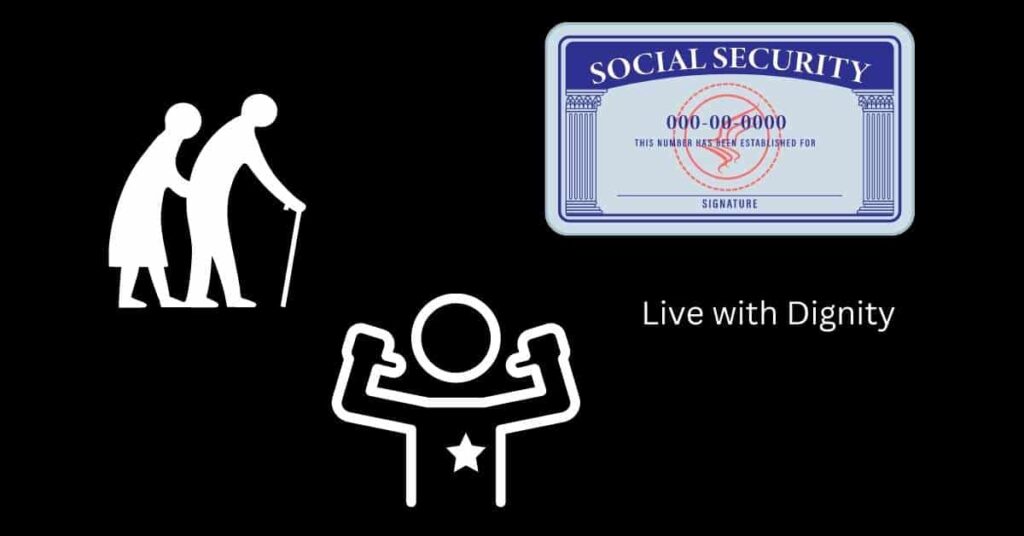
There are two parts to this right.
1. Discrimination
In 1964, Congress passed the Civil Rights Act prohibiting discrimination based on:
- Color
- Race
- Religion
- National origin
- Sex
This monumental act transformed hiring practices across America mandating employers hire based on credentials instead of discriminating against skin or sex.
2. People should receive government entitlements into retirement
Franklin D. Roosevelt signed the Social Security Act of 1935. You will see these taxes deducted from your paycheck every month. Total FICA Taxes (Federal Insurance Contributions Act) are 15.3% of your wages.
These payments are supposed to give the retired dignity in the “golden years.” If citizens completely relied on Social Security payments, they are considered to live in poverty. Financial advisors call Social Security “Social Insecurity” because people rely on a single source of income in retirement.
Protection of Workers’ Rights
Rights included under this category are:
- Minimum wage
- Right to parental leave
- Limit on hours worked
- Paid leave
- High pay for extra work including extra hours and night shift
The Industrial Revolution became a hard time for workers. Working conditions suffered. 16-hour days with minimum breaks pushed workers to extreme exhaustion. Workers didn’t know leisure time existed.
As a result of poor working conditions, labor unions rose in popularity. Organized labor improved working conditions for the average worker.
Recently, union popularity has fallen from its height at the beginning of the 20th century.
We have rights but who makes sure they stay protected? LEARN MORE about who protects our rights “We the People” or the government.
Controversial Unenumerated Rights
These rights are controversial due to debate on their legitimacy. I foresee discussions far into the future about these subjects.
Right to abortion
Women’s rights activists consider this an unenumerated constitutional right for body autonomy. Scholars consider this a state issue because Federal courts are reluctant to rule on issues affecting the body.
You guessed it. This is the pro-choice position.
Rights of the Unborn
The counterargument to on-demand abortion is to protect the rights of those who have no voice- children in the womb. Anti-abortion activists are a strong group since you see protestors constantly outside abortion clinics such as Planned Parenthood.
You guessed it. This is the pro-life position.
Right of equality
Are people equal in America? A better question is: is that even possible?
People will try to make everyone economically equal.
Immigrants travel to America for opportunity-not economic equality. They leave their origin country for a better life. They know achieving success takes hard work and dedication.
The amendments recognize only equality before the law.
Right to Housing
There will always be homelessness. While some people are left on hard times, others like the freedom living an unrestrained life brings.
For example, look at the YouTube channels of hobos riding trains across America. They like the nomadic homeless lifestyle.
Either way, I feel for the people that have no place to call home.
To remedy the problem, activists want the government to provide housing of all people- even if people are perfectly capable of providing housing to themselves. They want housing to be an enshrined constitutional social right. We will examine the problems associated with this argument in the next section.
Right to culture
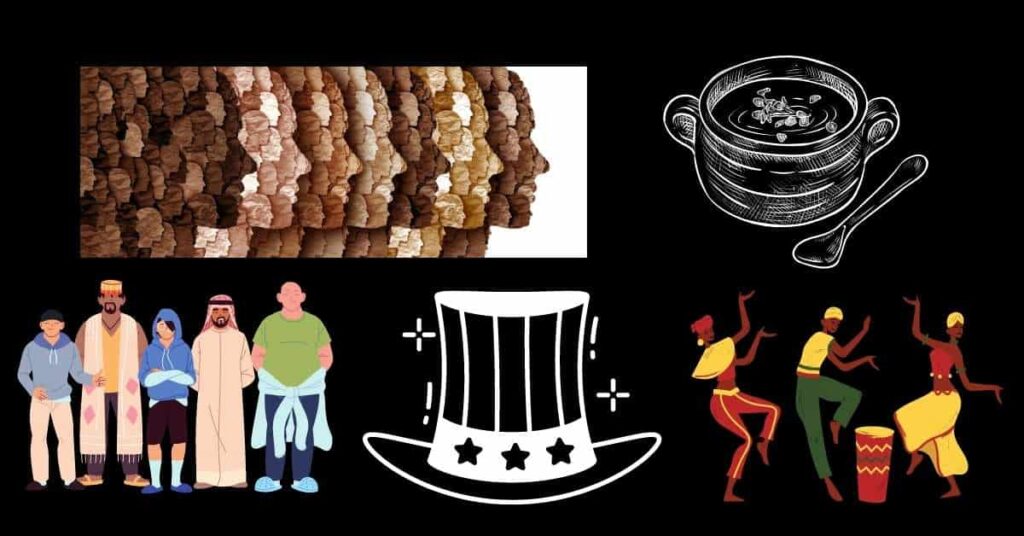
You might be thinking. How is this right controversial?
Each different sub-group of people have certain cultural aspects that they are proud of and would never change. I love trying different foods from around the world in my local neighborhood. That’s an awesome part of culture.
The problem arises when cultures don’t mesh and conflict happens within a country. There will always be minor conflicts. But, major cultural issues cause war.
Look around the world for examples of genocides.
America currently is in a culture war. The only way to fix it is to discuss and understand the opposition’s position.
The Framers compromised on aspects of the Constitution to surpass the culture war issues of the 18th century. We can do the same today!
Our current culture has problems. LEARN MORE about the problems faced at the Constitutional Convention. We can understand the history about this precious document.
Explaining Some of the Controversy
Constitutions are the highest form of law citizens look to for guidance. They must agree with the culture and others they regulate.
Below are 2 reasons why unenumerated rights are controversial.
Overregulation of citizens
What happens when the Constitution tries to overregulate?
We live in a society with liberty and a laissez-faire economic system. With that comes responsibility and the freedom to do as we see fit with as little government influence as possible.
Overregulated citizens become annoyed. No one likes dealing with annoyed people because they raise their voices and are irrational.
One solution is to keep the right ambiguous. If the status quo is working at 80%, why change it?
When courts are involved, judges are obligated to settle the dispute. The judge’s ruling will benefit one party making someone the loser.
Too many losers make people cynical. Thus, citizens view the Constitution as a worthless piece of paper that deserves a good burning.
Some issues are better put as legislation rather than enshrined in the Constitution.
Western Constitutions only like to regulate government actions against the people- not the private sector.
We don’t want to burden the courts with overregulating!
Social rights cause too much strain on government budgets
If some of these unenumerated rights were added to the Constitution, deficit spending would increase to astronomical levels.
Here is the definition of constitutional social right:
“A constitutional social right is defined here as one that grants a personal entitlement to monetary transfers (including social insurance) or transfer in kind on a universal basis. That right may affect permanent income and welfare.”
Avi Ben-Bassat and Momi Dahan
Social Rights in the Constitution and In Practice
If you want a good example of mandatory spending, look at what the United States spends on entitlement programs.
According to the Center on Budget and Policy Priorities:
- 21% of the Federal budget for 2022 was spent on Social Security
- 25% was spent on Health Insurance
- Combined that’s 46%- almost half of our total budget
The United States government’s deficit spending generates too many available dollars chasing fewer available goods. Therefore, we have massive inflation beyond the normal 2-3% a year.
Also, people demand increased government services. The original unenumerated rights become enumerated causing limitless claims of newer rights. This discredits rights already established.
Rights are not suggestions to the governments. They’re mandates to be obeyed by the government for its citizens. Rights can’t be surrendered to requirements of public health, morals, national security, or crime.
Conclusion
Implied rights are another name for unenumerated rights. Unenumerated rights are given wings mostly from judges’ rulings on court cases. That’s the only way to expand the Constitution without adding new amendments.
We examined how they’re have been different classifications of rights from civic and political to social.
Unenumerated social rights are up to the interpretation of the individual. You can expand or contract them depending on your viewpoint.
Yes, many social rights are contentious with other readers. I gave you a couple reasons why unenumerated social rights are worth discussing.
If you want some other resources, look up the following:
- Universal Declaration of Human Rights
- South Africa’s Constitution
- British Human Rights Act
- New Zealand Bill of Rights
What do you think of social rights? Do you agree with my analysis?
J. Liberty
Featured Image: Disobey / shutterstock.com
